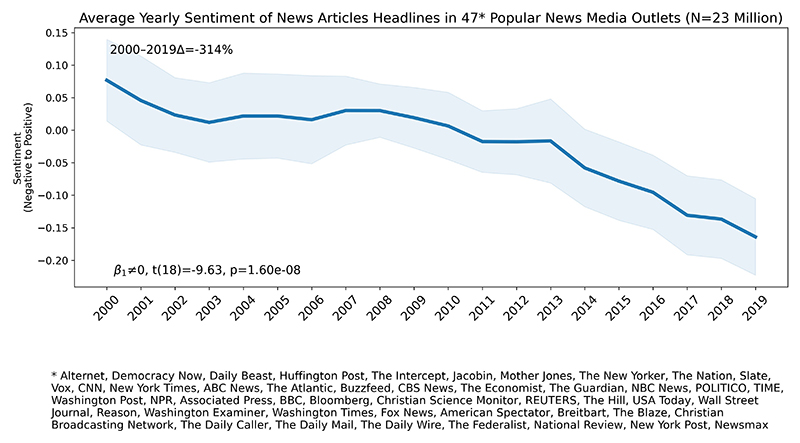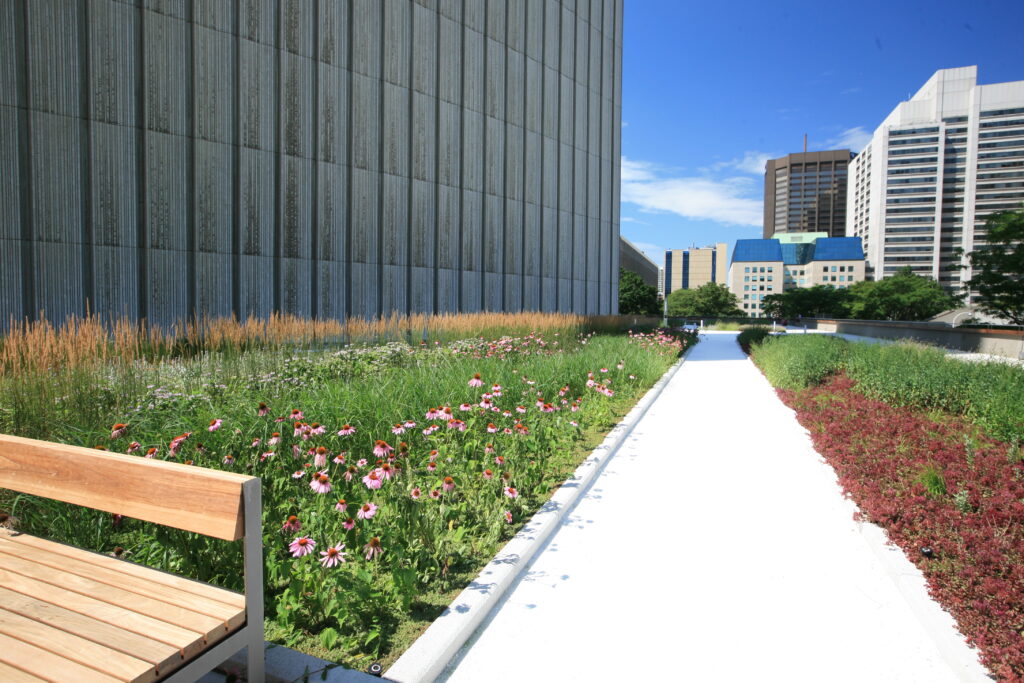Volcanoes are erupting in The Philippines, but on-fire Australia received some welcome rain. The Iran war cries have been called off and The Donald’s military powers are about to be hamstrung by the Senate. Meanwhile, his impeachment trial is starting, and we’re all on Twitter for a front-row seat.
What Could Go Right? Welcoming the world’s eight billionth human
And, is the United States ready to turn the page on Trump?
This is our weekly newsletter, What Could Go Right? Sign up here to receive it in your inbox every Thursday at 6am ET. You can read past issues here.
What does reaching eight billion humans mean for the planet?
Tuesday, November 15 was the United Nations’ Day of Eight Billion, the day that the world population was projected to cross eight billion people. (Of course, we don’t know exactly which day that happened or will happen. It’s an estimate.) As they explain, “This unprecedented growth is due to the gradual increase in human lifespan owing to improvements in public health, nutrition, personal hygiene and medicine. It is also the result of high and persistent levels of fertility in some countries.” From a progress perspective, the former is undoubtedly a win. What about the latter?
That one is a more complicated story. To begin, let’s lay some misconceptions to rest. First, the numbers of humans are increasing, but our overall rate of population growth is slowing, which means that it’s unlikely we’ll keep on increasing without end, as some think. Growth is mainly occurring in the world’s poorest countries, not everywhere, as fertility rates all over are decreasing. In many European countries and in others like Japan, they are not even high enough to replace current population numbers. This has led to arguments like the one from our founder, Zachary Karabell, and others that in the long term, the main issue besetting us might not be overpopulation but underpopulation, as we eventually lose the numbers of humans needed to keep our current economic systems running.
Second, while food insecurity remains a serious issue, notably in these poorer countries that cannot easily feed higher numbers of people, the popular Malthusian warnings of the 1980s that population growth will lead to mass starvation have not panned out. Since the 1940s, globally, we’ve managed to produce more food, move it around the world better, and feed more people, significantly dropping rates of hunger, malnourishment, and death—although in the last handful of years, the pandemic and the war in Ukraine have reversed some of those numbers.
Third, that more humans is just a bad thing, in particular for the environment. It’s true that we’ll need to simultaneously take care of more people and cut emissions in the next 20 to 30 years. That is, to put it lightly, a challenge, even though the link between population and climate change is not as strong as many say. But we can also take the challenge hand in hand with the more positive framing that just as one more human is one more mouth to feed (and shelter and so on and so forth), so too is it one more brain to put to use solving problems.
If, that is, those brains can get to the right places. Facing a climate change–uncertain world, we would be in a better position if rich countries with low fertility rates and cleaner technology would open their doors to people from South Asia and sub-Saharan Africa, where populations are growing and which also happen to be where climate change effects will hit hardest. Or as The Progress Network (TPN) Member Parag Khanna says in the Financial Times: let them migrate. He writes, “More habitable regions need to think about how to reprogramme themselves into an archipelago of centres for our future civilization.”
“This enlightened scenario urges us towards a world of demographic mobility combined with sustainable infrastructure,” he goes on. Difficult, to be sure, but better than “the other scenarios on offer,” which “portend a neo-medieval world of warring fortresses, fending off at the gates those who both need and could offer help.”
Perhaps we can take this enlightened scenario more seriously as we welcome the Earth’s eight billionth human. Hello, kiddo. We’re trying hard to make this world a worthy place for you to live. In particular, this week we can at least give you the good news that emissions are still growing, but more slowly, reaching a “near-plateau.”
Trump is back, but “it’s time to turn the page”
Tuesday was also the day that Donald Trump announced his 2024 presidential run. Generally, we aren’t planning to cover presidential contenders in this newsletter, but we make an exception for Trump from the perspective that progress of many types will be in great jeopardy if American democracy goes down the toilet.
Are we ready to turn the page on Trump? The Bulwark writer Will Saletan thinks so, tweeting, “In the long run, cultism loses out to the great universal solvent, fatigue.” We took up the discussion of whether the nation as a whole has truly moved on from Trump-style toxicity in this week’s What Could Go Right? podcast episode with TPN Member Steve Clemons.
So far, the press, on the right and the left, is not equivocating this time around:
Straight facts, as the kids say. The National Review‘seditorial board took a more colorful tack, starting their piece on Trump’s announcement—simply titled “No“—with the following: “To paraphrase Voltaire after he attended an orgy, once was an experiment, twice would be perverse.”
One specific follow-up to our midterms and election deniers–themed newsletter last week, and in relation to Trump in the case that he wins the Republican primary—there is now some protection against a nightmare scenario. From economist Noah Smith’s Substack, “The most important election-denier losses came in the key battleground states of Michigan and Pennsylvania. If the 2024 election pattern looks anything like 2020, it will be very hard for Trump to overturn the result without overturning it in at least one of those two states. And election-deniers lost resoundingly in both.”
We’re still waiting on final turnout numbers from the midterms, but it’s looking like they’re going to be under 2018 turnout, when an anti-Trump sentiment drove a lot of Democrats to the polls. But it will still be quite high when compared to midterm races of the last 20 years. The Washington Post has an interactive here.
Before we go
Most conspiracy theories are false, but some are true. How can we tell the difference? We enjoyed this “conspiracy detection kit” of 10 rules to follow to keep an eye on which is which.
There’s a widespread assumption—and one even we make in this newsletter edition!—that climate change will result in conflict. That may turn out to be true, but it’s not written in stone. We hadn’t heard the concept of “environmental peacebuilding” until this National Geographic article on it. Environmental peacebuilding is the “full spectrum of ways in which environmental issues can be harnessed to prevent, reduce, resolve, and recover from conflict.” Results so far have varied, but it’s a very new field.
And in Egypt, a tunnel has been found that may lead to Queen Cleopatra’s tomb!
Below in the links section, glow-in-the-dark sharks, better-looking solar panels, all-terrain wheelchairs, and more.

Greening the city: pockets of hope for urban biodiversity

Cities are adopting green infrastructure to become more climate-resilient. These measures are reviving all kinds of urban biodiversity as well. | Read more
Moving Away from Toxicity: Recapping the Midterms | S3 E9

This week on the What Could Go Right? podcast: Are Americans truly done with “angertainment” and toxic politicians? Is democracy safe? Where does the United States go from here? Founding Editor at Large of Semafor and former Editor at Large of The Hill and The Atlantic Steve Clemons joins us to react to the midterm results and analyze their impact. | Listen to the episode
Progress, Please
(Found good news? Tweet at us @progressntwrk or email.)
Other good stuff in the news 🦈
Energy & Environment:
- Can Thailand’s floating solar farm help the country hit its climate goals? | BBC
- The Paris Agreement is working . . . for now | The Atlantic
- Satellites scrutinize site-specific emissions in effort backed by Al Gore | The Hill
- Discovered in the deep: the sharks that glow in the dark | The Guardian
- Transplanted coral is thriving on a 3D-printed reef in Hong Kong | Bloomberg
- Coral grown in Great Barrier Reef nursery spawns for first time | The Guardian
- How Nepal grew back its forests | The New York Times
- In Zambia, female farmers adapt to climate change | DW
- Chile is leading the way in solar energy | El País
- Rooftop solar is becoming more accessible to people with lower incomes | Inside Climate News
- Coming soon: solar panels that actually look attractive | The Wall Street Journal
- The nuclear energy ice age appears to be over | Neutron Bytes
- AI to be used to develop nuclear fusion energy | Newsweek
- Rolls-Royce seeks to open mini-nuclear reactors across Wales, the North and West Midlands by 2030 | The Telegraph
- From dump to urban wetland, wildlife returns to river in Chile‘s capital | Reuters
- In the Amazon rainforest, a giant fish makes a comeback thanks to settler and Indigenous cooperation | PBS NewsHour
- Philanthropists acquire nearly 4,000 hectares of NSW koala habitat for conservation | The Guardian
- Meet the Millennium Forest: A unique tropical island reforestation project | Mongabay
- Bamboo: ‘The green steel of the 21st century‘ | Reasons to Be Cheerful
- Icelandair announces carbon-free flights by 2030 | Impakter
- Decarbonization of US aviation sector ‘within reach’ | The Hill
Science & Tech:
- Your next car might not drive if you’ve been drinking | Axios
- Latest US weather satellite, set to scan storms like Nicole, launches | The Washington Post
- Artemis I: A giant rocket to set new space records | BBC
Politics & Policy:
- African insurers take up climate change fight with $14B pledge | Reuters
- COP27 delivers €15M to protect Egypt’s coral reefs | Euronews
- US, Japan, and EU unveil $20B plan to wean Indonesia off coal | Axios
- These rich nations are finally committing cash to climate reparations | Inside Climate News
- Is ‘24/7 carbon-free energy’ the new gold standard of decarbonization? | Energy Monitor
- Paris turbocharges affordable housing | Bloomberg
- New data shows 11% decline in veteran homelessness since 2020 | US Department of Housing and Urban Development
- EU proposes emission rules for last combustion engine cars | The Hill
- Canada sets pace on cutting planet-warming methane emissions | Bloomberg
- Ethiopian rivals agree on humanitarian access for war-ravaged Tigray | The Guardian
- While abortion rights shrink in the US, this small country expanded access | The New York Times
- Colorado voters approve decriminalization of 5 natural psychedelics | Reason
- What it means that a historic number of LGBTQ candidates won midterm elections | NPR
Public Health:
- In a first, a fatal enzyme deficiency is treated in the womb | STAT
- This personalized CRISPR therapy is designed to attack tumors | Wired
- Cases of blindness and visual impairment decline dramatically across India | The Times of India
- Cigarette smoking has declined among adults in the US | CDC
- Lower-income countries push to reach more than 85 million children with measles vaccine | Gavi
- Australia’s life expectancy has risen to third-highest in the world | New Scientist
- A crash course in organ transplants helps Ukraine’s cash-strapped healthcare system | NPR
- A new therapy sends lupus into remission | Freethink
- Yale’s new nasal vaccine can boost an mRNA shot | Freethink
Society & Culture:
- Remains of 18 Indigenous people held by UK museums return to Australia | The Guardian
- All-terrain wheelchairs arrive at US parks: ‘This is life-changing’ | The Washington Post
- Nataša Pirc Musar to become Slovenia’s first female president | The Guardian
- Minor police encounters plummet after LAPD put limits on stopping drivers and pedestrians | Los Angeles Times
- Why are way more women working in construction? | The Washington Post
- US use rainbow logo at Qatar World Cup in support of LGBTQ community | The Guardian
Economy:
- Local ride-hailing startups thrive in the towns that Uber forgot | Rest of World
- How Black landowners in eastern North Carolina are recovering generational wealth | The Nation
- How to slash carbon emissions while growing the economy, in one chart | Vox
- Economic growth no longer requires rising emissions | The Economist
- Electric vehicles start to enter the car-buying mainstream | The New York Times
- Indonesia is poised for a boom—politics permitting | The Economist
- US wholesale inflation eases to 8%, 4th straight slowdown | AP
TPN Member originals 🧠
(Who are our Members? Get to know them.)
- The big liar and his losing little liars | Thomas L. Friedman
- Post-election reflection | Robert Wright
- Instead of a red wave, the midterms produced a wave of historic firsts | Ruth Ben-Ghiat
- Ed Luce on America’s future after the midterms | Yascha Mounk
- Democrats and Republicans agree that America is always right | Zachary Karabell
- Energy geopolitics | Jason Bordoff
- Marriage is a team sport | Arthur C. Brooks
- A new formula for happiness | Arthur C. Brooks
- How fear of the ‘Mega-Machine’ helped end America’s postwar economic Golden Age | James Pethokoukis
- Every day, no matter how successful we become, we need to earn our success | Scott Galloway
- The FTX meltdown explained—with David Yermack | Scott Galloway
- Europe’s tough decisions: Russia, China, and EU unity | Ian Bremmer
- Unify and stand for something! Lessons from center-left defeats in Hungary, Israel, and Italy | Ruth Ben-Ghiat
- Ukraine’s new world order | Diane Francis
- How harm reduction disrupts painful cycles of addiction | Alissa Quart
- When ‘racism’ is not really racism | John McWhorter
Department of Ideas 💡
(A staff recommendation guaranteed to give your brain some food for thought.)
Against “polycrisis” | Noahpinion
We have lots of problems, but they’re not mutually self-reinforcing.
Why we picked it: What does a polycrisis give us? An opportunity for a polysolution. Enjoy economist Noah Smith on why the shocks the world has received in recent years have finally spurred us into action. —Emma Varvaloucas
Until Next Time
“Beef beef beef beef beef. . .” 👇


